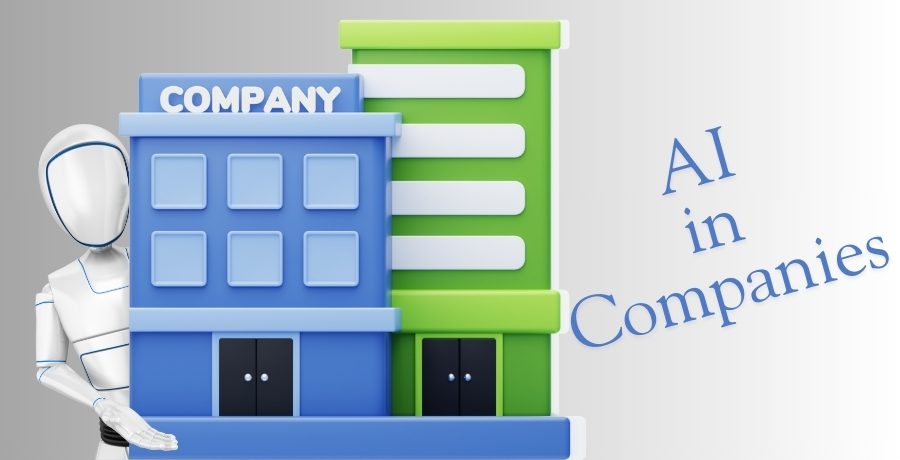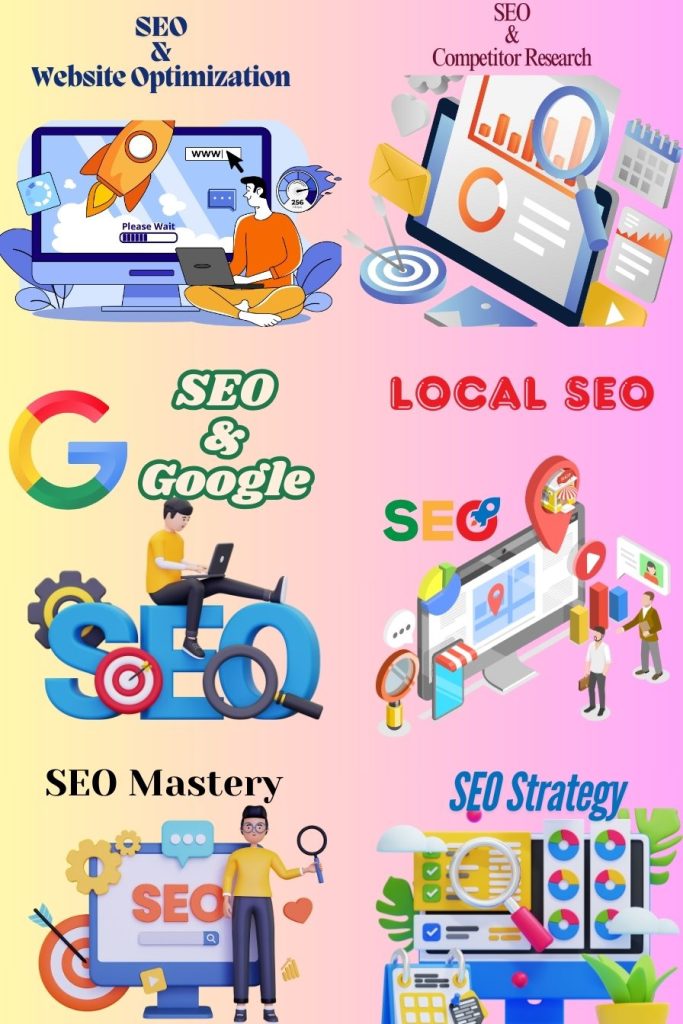Introduction to AI in Companies
AI in Companies: Artificial intelligence (AI) is at the forefront of business transformation, revolutionizing industries and acting as a powerful driver of innovation and competitive edge. Businesses increasingly rely on AI to boost operational efficiency, deliver hyper-personalized customer experiences, and streamline complex processes. This article delves into the multitude of ways companies harness AI’s potential, examining its far-reaching benefits, tackling associated challenges, and offering actionable strategies for effective implementation in today’s rapidly evolving marketplace.
What is Artificial Intelligence?
Defining AI in the Corporate Context
Artificial intelligence is the simulation of human intelligence in machines programmed to think critically, learn autonomously, and solve complex problems. In a corporate setting, AI extends beyond automation, including transformative capabilities such as machine learning for predictive analytics, natural language processing for understanding and generating human language, and robotics for executing intricate tasks. These technologies empower businesses to automate repetitive processes, uncover deep insights from data, and make informed decisions with precision and speed.
Types of AI Technologies Used in Businesses
From chatbots to predictive analytics, businesses employ various AI technologies, including:
- Machine Learning (ML): Algorithms that improve with data.
- Natural Language Processing (NLP): Tools like virtual assistants that understand human language.
- Computer Vision: Image and video analysis for automation.
Benefits of AI in Companies
Enhancing Operational Efficiency
AI automates repetitive tasks, minimizing manual errors and enabling employees to focus on more strategic and creative initiatives. By utilizing AI-driven inventory management systems, businesses can predict stock requirements with remarkable accuracy and optimize supply chain operations. For instance, these systems analyze historical data, seasonal trends, and market fluctuations to prevent overstocking and stockouts. Moreover, AI-powered tools ensure real-time inventory updates, enhancing decision-making and reducing unnecessary operational costs. This seamless integration of AI fosters agility, making companies more responsive to changing market demands.
Improving Customer Experience
AI-powered chatbots and personalized marketing campaigns are revolutionizing customer engagement by ensuring every interaction feels meaningful and relevant. Advanced chatbots provide real-time assistance, resolving customer queries quickly and effectively, while personalized marketing leverages deep data analysis to anticipate customer needs. By examining past purchase behaviors, preferences, and browsing patterns, AI recommends tailored products and services, creating a sense of exclusivity and care. These practices foster customer loyalty and satisfaction and significantly enhance brand trust and long-term relationships with clients.
Cost Reduction and Resource Optimization
AI reduces operational costs by streamlining workflows, predicting maintenance needs, and automating routine processes. Predictive analytics allows companies to precisely anticipate market trends, forecast customer demands, and allocate resources. For instance, AI tools can detect potential machinery failures before they occur, saving time and money. Additionally, intelligent resource planning driven by AI minimizes wastage and ensures optimal utilization, enhancing overall operational efficiency and profitability.

Real-World Applications of AI in Companies
AI in Marketing and Sales
AI revolutionizes marketing and sales by providing powerful tools and techniques to help businesses understand customers, optimize campaigns, and anticipate market trends.
This digital age is transforming marketing strategies and achieving better results. Below are some key ways in which AI is revolutionizing marketing and sales:
- Predicting Consumer Behavior: AI helps marketing teams predict consumer behavior by analyzing brows such as history and purchase behavior, enabling. This enables us to anticipate preferences, identify patterns, and forecast trends.
- Personalizing Ad Campaigns: AI in marketing allows for personalized advertising campaigns by analyzing individual consumer data in real time, delivering tailored ads, challenging dynamic pricing, and providing contextually relevant experiences. This drives higher engagement and brand loyalty.
- Analyzing Market Trends for Strategic Planning: AI can analyze market trends from various sources, providing business strategic planning insights. This data-driven insight aids in product development, pricing strategies, and positioning, enabling quick adaptation and competitiveness in the rapidly changing market.
AI is revolutionizing marketing and sales by predicting customer behavior, personalizing campaigns, and analyzing market trends. This boosts customer engagement and drives industry growth and profitability.
AI-Powered Supply Chain Management
AI revolutionizes supply chain management by providing advanced solutions that enhance efficiency and streamline operations. By utilizing machine learning, data analytics, and automation, AI helps businesses manage every aspect of the supply chain, from procurement to delivery.
AI enhances supply chain management by predicting disruptions, optimizing logistics routes, and managing inventory in real-time. By analyzing historical data, demand trends, and market conditions, AI can predict potential delays and issues, allowing businesses to take proactive measures to mitigate risks.
AI can also dynamically adjust routes based on real-time data, ensuring goods reach their destinations efficiently. AI is transforming supply chain management by reducing waste, improving resource allocation, and enhancing profitability.
HR and Recruitment through AI
AI is revolutionizing HR and recruitment processes by streamlining tasks, improving accuracy, and enhancing candidate experience.
AI-powered tools use natural language processing algorithms to screen resumes, analyze candidates’ qualifications, and match them with job descriptions.
This reduces human bias and increases the likelihood of hiring well-suited candidates. AI-powered virtual assistants offer personalized guidance, answering frequently asked questions and providing information about company policies and culture, ensuring a smooth transition into new roles.
This allows HR departments to focus on strategic initiatives while employees enjoy a more engaging and efficient onboarding experience.
Challenges of Implementing AI in Companies
Implementing AI in companies presents ethical concerns and can result in workforce displacement. Strategic planning and careful consideration are necessary to ensure successful adoption.
Below are some of the key challenges companies face when implementing AI:
Ethical Concerns
As AI integration into business operations increases, ethical concerns arise due to potential algorithm bias. Large datasets can lead to unfair hiring, lending, law enforcement, and healthcare practices.
To mitigate these risks, companies should ensure transparency, use diverse data, implement fairness algorithms, and prioritize ethical guidelines in AI development.
Data Privacy and Security Issues
AI systems rely heavily on data, raising concerns about privacy and security.
Companies must ensure robust security measures and comply with data privacy laws, such as the GDPR in Europe, to protect data from unauthorized access and misuse while building trust with customers and users.
Workforce Displacement
AI implementation raises concerns about workforce displacement, as specific jobs may become obsolete due to automation.
To address this, companies should invest in reskilling and upskilling employees, transitioning them to advanced roles in AI development, data analysis, and robotics and fostering a culture of continuous learning to ensure workforce adaptability.

Case Studies: Successful AI Implementation
Successful AI implementation in various industries enhances operations, customer experiences, and innovation. Case studies demonstrate improved efficiency, decision-making, and outcomes.
Below are some case studies of successful AI implementation in different sectors:
AI in Retail: Transforming Customer Experience
Amazon is leveraging AI to enhance the shopping experience and optimize operations. The company uses sophisticated algorithms to analyze customer behavior and preferences, recommending products that increase purchase likelihood.
AI also optimizes pricing by adjusting real-time prices based on demand fluctuations, competitor pricing, and inventory levels. It helps streamline delivery processes by predicting customer demand and analyzing logistics data.
AI-powered robots and drones assist in product sorting and deliveries, reducing human error and speeding up processing times.
AI in Healthcare: Revolutionizing Patient Care
AI is revolutionizing various industries, enhancing operations, improving customer experiences, and driving innovation.
Retail giants like Amazon use AI to recommend products, offer dynamic pricing, and streamline delivery processes. AI also revolutionizes patient care by detecting diseases early, creating personalized treatment plans, and streamlining administrative tasks.
AI-powered virtual assistants assist patients with appointment reminders and answering basic health-related questions, reducing administrative burdens and improving healthcare efficiency.
AI in Manufacturing: Streamlining Production
AI is revolutionizing the manufacturing industry by optimizing production processes, improving product quality, and enhancing operational efficiency. It also helps predict equipment failures, reduce downtime, and prevent costly emergency repairs.
It also inspects products at every stage, detecting defects invisible to humans. This leads to higher product quality and reduced waste. AI-powered robots and automation systems automate repetitive tasks, boosting productivity, reducing human error, and freeing workers to focus on more complex tasks.
How to Successfully Implement AI in Companies
Successful AI implementation in companies requires careful planning, preparation, and execution, including developing a clear strategy and measuring results. Below are key approaches for successful AI implementation:
Developing an AI Strategy
An AI strategy that aligns with a company’s overall business goals is crucial for successful implementation. Key steps include identifying business objectives, assessing resources, setting priorities, and creating a roadmap.
Companies should evaluate their infrastructure, data availability, and technical capabilities to ensure they are ready to support AI systems. Prioritizing projects based on ROI, feasibility, and alignment with long-term goals ensures a structured approach.
Aligning AI projects with strategic objectives maximizes the impact of investments while minimizing risks.
Ensuring Team Readiness and Training
To successfully implement AI, companies must focus on team readiness and training. This includes building awareness about AI’s benefits, investing in training programs, encouraging a growth mindset, and engaging leadership.
Open communication about the company’s AI strategy fosters trust and buy-in. Hands-on workshops, online courses, and certification programs help employees develop the skills to use AI effectively. This approach minimizes resistance to change and empowers employees to embrace AI as a valuable asset.
Measuring ROI and Success Metrics
Companies must define and measure key performance indicators (KPIs) to evaluate the effectiveness of AI initiatives. These metrics help track progress, identify areas for improvement, and demonstrate the value of AI investments.
Key steps include defining KPIs, establishing baselines, regular monitoring, and refining AI models. By measuring these metrics, companies can make informed decisions about scaling AI initiatives and allocate resources to projects delivering maximum value.

Future Trends in AI for Companies
Artificial intelligence (AI) continues to evolve, offering companies new opportunities to innovate, streamline operations, and enhance decision-making. As AI becomes more integrated into business strategies, emerging trends shape how companies leverage their potential.
Below are some key trends that are expected to define the future of AI in business:
The Rise of Generative AI
Generative AI, a subset of artificial intelligence, uses algorithms like ChatGPT and DALL·E to create original content, designs, and solutions.
Generative AI offers endless possibilities for innovation across industries, including content creation, design and prototyping, problem-solving, and ideation. As it advances, it will empower creativity, enhance efficiency, and drive innovation, becoming a vital asset for businesses.
AI Integration with IoT and Blockchain
Integrating AI with IoT and blockchain technologies is revolutionizing operations and data management. AI-powered IoT systems process real-time data, enabling more intelligent decisions.
Blockchain strengthens data security, while AI detects and prevents cyber threats. In supply chains, AI and blockchain ensure end-to-end traceability, enhancing transparency. This integration will drive innovation in industries relying on interconnected systems, improving operational efficiency and security.
Ethical AI and Transparent Algorithms
As AI becomes more widespread, concerns about ethics and transparency are growing. Companies are focusing on bias mitigation, algorithm transparency, and regulatory compliance.
By training AI systems on diverse, unbiased datasets, addressing algorithmic bias, and aligning with global standards like the EU Artificial Intelligence Act, they can build stakeholder trust, mitigate risks, and ensure long-term sustainability in AI initiatives.
Conclusion
AI is revolutionizing the corporate world, driving growth, efficiency, and innovation. However, companies must navigate and adopt challenges responsibly to ensure long-term success. To harness AI’s full potential, companies must develop transparent systems, invest in employee training, and foster a learning culture.
Collaboration between technology experts and decision-makers is crucial. AI is no longer an option but is necessary for staying competitive in the digital age.
By leveraging AI to its fullest potential while remaining mindful of ethical and societal considerations, businesses can unlock new opportunities, drive growth, and lead the way into a more intelligent and efficient future.

FAQs
- How can small businesses benefit from AI?
Small businesses can use AI to automate tasks, improve customer service, personalize marketing, and optimize operations, which can make them more competitive.
- What industries are leading in AI adoption?
Industries like healthcare, retail, finance, manufacturing, and technology are at the forefront of AI adoption.
- Is AI implementation expensive for companies?
AI implementation can be costly, but advancements in AI-as-a-service platforms and cloud computing have made it more affordable for businesses of all sizes.
- How can companies ensure ethical AI use?
Companies can ensure ethical AI use by eliminating bias in algorithms, ensuring transparency, complying with regulations, and conducting regular audits of AI systems.
- What skills are required to work with AI technologies?
Skills like programming (Python, R), machine learning, data analysis, AI model development, and understanding algorithms are essential for working with AI technologies.
- Can AI replace human jobs entirely?
While AI can automate specific tasks, it is unlikely to replace human jobs entirely. Instead, it is expected to create new roles and augment human work.





